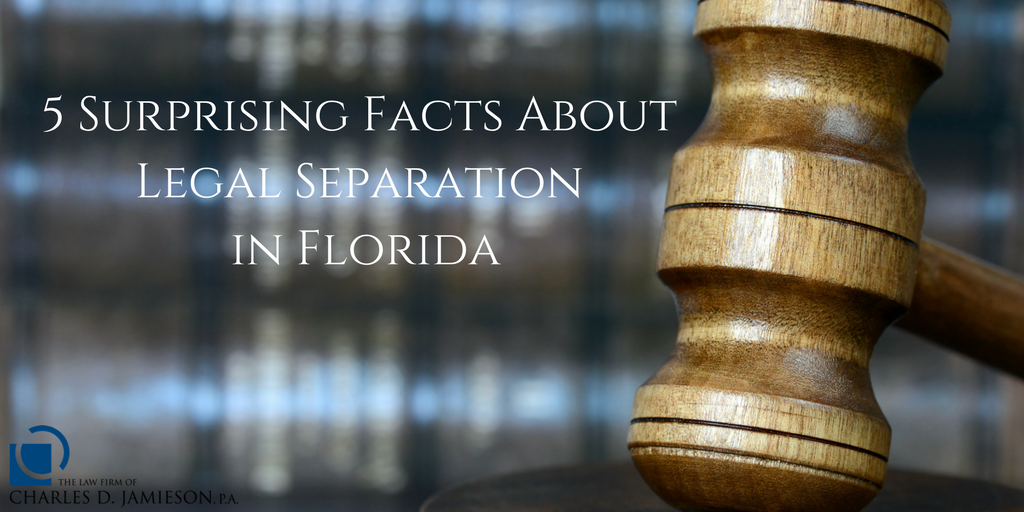For a variety of reasons including health insurance concerns, religious concerns, social security and pension benefits, and even a desire to eventually reconcile, couples in troubled relationships may opt for legal separation rather than divorce. In Florida, there are a number of surprising facts about legal separation that you should consider before deciding on that option.
Legal Separation in Florida
Fact #1: Florida is one of only six states that does not recognize legal separation.
In other states, couples can file for legal separation, which allows them to reach agreements on issues including spousal support, child custody and child support payments. In Florida, there is no specific law defining legal separation.
Fact #2: Just because legal separation is not recognized in Florida doesn’t mean you cannot reach court-adjudicated decisions or agreements in areas such as child support and alimony without commencing a divorce.
In Florida, couples seeking separation or financial support without commencing a divorce can take advantage of statutes which permit them to agree upon or litigate issues of spousal support, child support and timesharing (custody/visitation) without commencing a divorce.
The couple remains legally married, but achieves legal separation in the form of a court order. If they have children and are living apart or are still living together, either spouse can request court adjudication of issues such as child custody and visitation rights (timesharing), and child support payments.
Fact #3: Specific legal agreements relate to formalizing the terms of a separation in Florida.
These include:
A Separation Agreement. This legally binding agreement can provide the same result as legal separations in other jurisdictions.
Petition for Support. A Petition for Support Disconnected with Dissolution of Marriage allows one spouse to receive child support and alimony for the spouse who has moved out of the marital residence without filing for divorce.
Postnuptial Agreements. This agreement specifies the terms and condition of the division/distribution of assets, debts and alimony.
Fact #4: Decisions made during separation proceedings are not binding in the event either spouse files for divorce.
At the point a couple moves forward with a legal divorce, the courts can reexamine issues of (visitation/custody), child support, and spousal support, as well as the division of marital assets and properties.
While separation may be the right decision for you and your spouse, it is not the easiest course to navigate if you have children or complex asset holdings and need decisions related to these issues to be permanently binding. You have to agree to say “no” to divorce, but you should say “yes” to a divorce lawyer with experience in the area of legal separation in Florida.
Board Certified Marital and Family Law Attorney Charles D. Jamieson understands that divorce is an extremely sensitive and important issue. Thanks to extensive education, training, and experience in mediation and collaborative divorce and a focus on open communication, Attorney Jamieson adeptly addresses the complex issues surrounding divorce while delivering excellent personal service. To discuss financial issues related to divorce, or to determine if collaborative divorce is appropriate for your case, please contact The Law Firm of Charles D. Jamieson, P.A. online or call 561-478-0312 to schedule a consultation.



